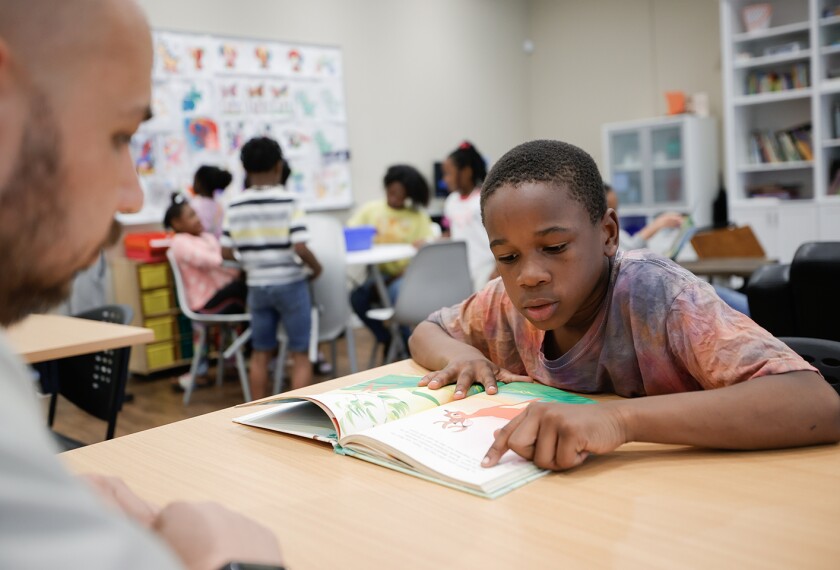Students suffered a lot academically when the pandemic disrupted their learning. The most recent National Assessment of Educational Progress results show big drops in math, reading, and history and civics achievement.
At the same time, students’ social-emotional skills and mental health also took a toll. Teachers have reported more student misbehavior, and data shows that the youth mental health crisis has worsened.
In a June 6 Education Week webinar, panelists discussed the role of after-school programs in helping schools address these challenges, especially around how much time should be spent on academic versus social skills. The panelists included Jodi Grant, the executive director of the nonprofit advocacy organization Afterschool Alliance, and Kim Templeman, the principal of Central Oak Elementary School in Oklahoma City, Okla.
After-school programs supplement classroom learning
Principals were more than twice as likely as after-school program personnel to say the primary focus of after-school programs for students should be providing academic support, according to survey data from the Education Week Research Center.
But the panelists said the role of after-school programs is to support kids holistically, not just in one area.
“After-school programming has always been a huge opportunity to supplement what kids are learning in school,” Grant said. “We can maximize that opportunity to really engage and excite our students with a second set of educators that can really build on and enhance what happens during the school day, but that doesn’t need to look like what happens during the school day.”
At Central Oak Elementary, Templeman said she and her staff work hard to “connect our regular-day-needs to our after-school programming,” so that means finding out which students are struggling and what they’re struggling with and then providing extra help during after-school time.
“It’s much more enjoyable for the child to receive those services in that environment,” Templeman said. “It’s less stressful. There are fewer kids.” And there’s “much more flexibility” in an after-school program to provide personalized learning because there’s no pressure to stick to a specific schedule.
After-school programs are also another place where kids have the opportunity to have “healthy interactions” with each other and with adults, Grant said. For example, some programs have brought in mental health professionals to work with students’ emotional needs. And even something like playtime can help kids forge relationships and build teamwork skills.
Challenges after-school programs are facing
While after-school programs are an important supplement to what schools are doing, it’s not always feasible because schools and other after-school providers face funding and staffing challenges, the panelists said.
One of the biggest challenges for school districts that have after-school programs is “guarding against burnout,” Templeman said.
One way to do that would be to have educators teach a different grade or subject after school or have teachers lead programs they’re passionate about. For example, a chemistry teacher might want to do an after-school program that has to do with cooking if that’s what he’s passionate about; or a teacher who loves running could lead a running club.
“When teachers get to interact with students in after-school programs or over the summer, in a less formal way, it absolutely improves their relationships during the school day,” Grant said.
There are also ways to bring in community partners to help staff after-school programs, Grant said. Maybe there’s a local artist or musician who can lead a program that teaches kids about art or music, or a local health care worker who can talk to students about their physical and mental health.
In terms of funding, there are federal and state grants available to fund after-school programming, but Grant said there’s still more work to be done in getting funding specifically geared toward after-school programs.
“We need our policymakers, when they’re thinking about funding educational programs, to create separate funding streams so that we can bring in partnerships and enrichment after the school day and not compete with funding for the traditional school day,” Grant added.







